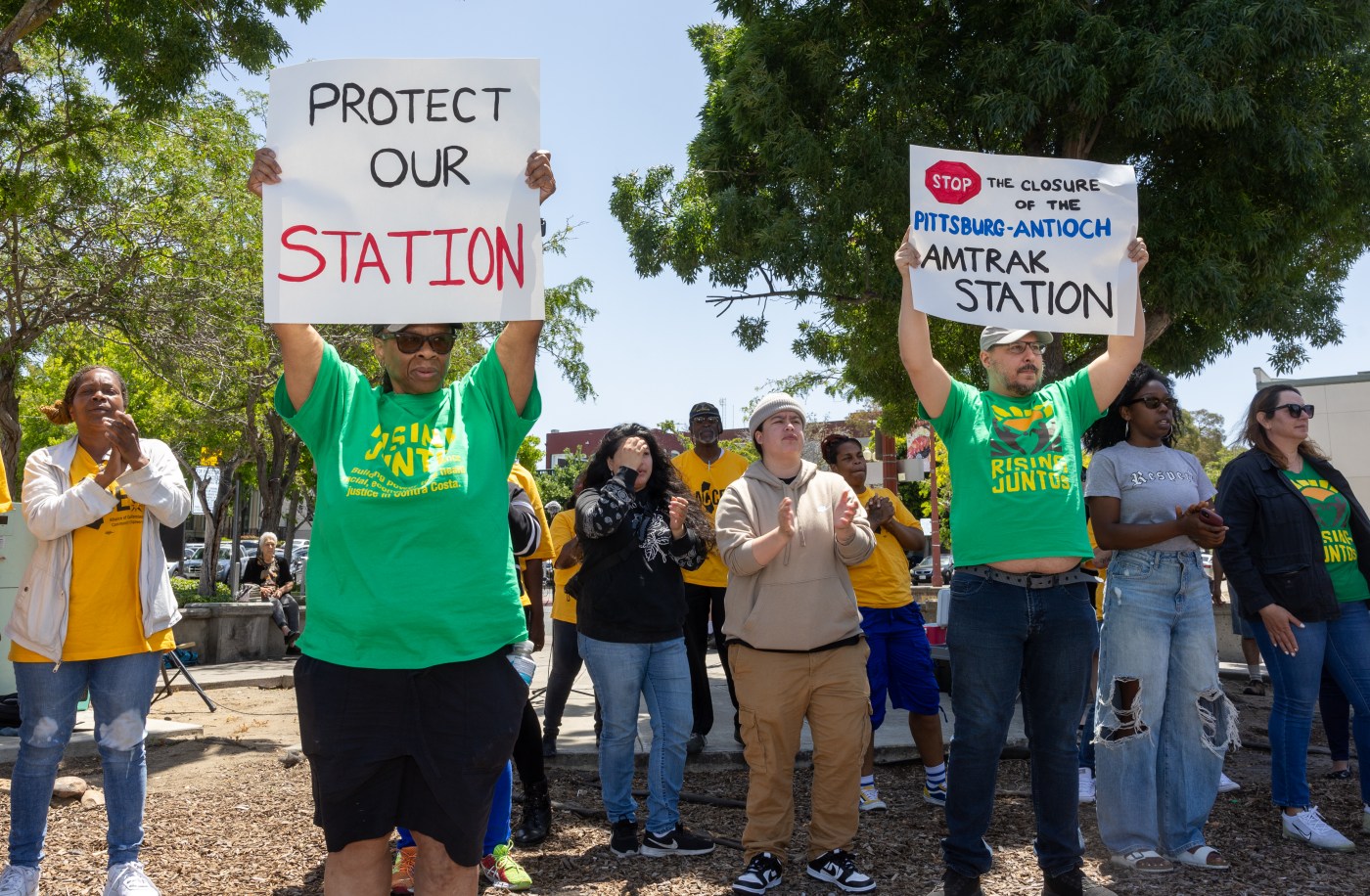
Opinion: Unjust closure of Antioch Amtrak station deserves a closer look
As California lawmakers discuss the future and funding needs of the Bay Area’s 27 transit agencies, they seem to be overlooking one: the San Joaquin Joint Powers Authority and its unparalleled community abuses.
The San Joaquin JPA, which oversees passenger train service from Oakland to Stockton and Bakersfield, is largely unchecked by California lawmakers even though its network helps move over 700,000 people each year. Tens of thousands use the station in downtown Antioch, placing its ridership within the mid-range compared to other stops. In its 2022 business plan, the authority praised the station’s so-called transit oriented development, or TOD, potential, as well as its collaboration with the city, highlighting private developments that would bring more residents downtown to walk to the station and use this service.
But just a few months after the plan came out, the JPA board voted to shut down service to the Pittsburg and Antioch communities. Considering the public engagement process required to bring transit to a community — or change a building in an historic district — it is shocking that the San Joaquin authority felt it was right to shut down service with little to no notification to the people who use the train to get to work, family, services and for folks throughout the region who use it to visit Antioch.
The San Joaquin JPA covers a wide area, with its board representing 10 member agencies: Alameda County, Contra Costa Transportation Authority, Fresno Council of Governments, Kings County Association of Governments, Madera County Transportation Commission, Merced County Association of Governments, Sacramento Regional Transit, San Joaquin Regional Rail Commission, Stanislaus Council of Governments, and Tulare County Association of Governments.
Unfortunately, the lack of state oversight and wider media attention has emboldened the authority to act unilaterally, without community engagement or warning, and vote to shut down successful service to the Antioch-Pittsburg station. At the time, the Antioch mayor said he was blindsided by the move.
The agency’s disrespect has provoked protests in the streets, a city resolution condemning its actions, and a public rebuke from Rep. John Garamendi, one California’s strongest transit champions in Congress.
In a recent letter, Garamendi wrote that “to date, I am deeply unsatisfied with the explanations offered by the Joint Powers Authority on its rationale for closing the Antioch-Pittsburg Amtrak station.” He called on the authority to postpone closure of the Antioch-Pittsburg station, echoing the outcry from community members who have been organizing with the Alliance of Californians for Community Empowerment Antioch and others to protest this closure.
If this agency doesn’t course correct, and instead follows through with its threat to eliminate transit service to two cities comprised of hundreds of thousands, largely working-class Californians of color, then the legislature and attorney general must step up and fix things.
Related Articles
New uniform signs and maps aim to streamline Bay Area public transit services
Antioch residents fight to keep troubled Amtrak station open
Authorities: Gambling debt between bus drivers fueled deadly shooting at VTA yard
Caltrans to close southbound I-680 between Alcosta Blvd. and I-580 connector this weekend
California drivers can now get mobile licenses on their iPhones — but they need physical ones too
Ultimately the decision raises some important questions that the congressmember, Antioch mayor and community have been asking: Why would a transit agency shut down a successful station and open another station in a smaller, suburban area? The historically Black communities of Antioch and Pittsburg losing a station while the smaller, richer, whiter community of Oakley is gaining one — why doesn’t the agency serve both stations?
The San Joaquin JPA’s unprecedented decision to shut down the Antioch-Pittsburg Amtrak station demands immediate legal scrutiny from the attorney general. This is a dangerous precedent for all communities, especially transit-dependent, low-income communities of color. Until this is challenged, the Antioch and Pittsburg communities bear the burden, left at a standstill in their daily lives due to this unwarranted closure.
Carter Lavin is the co-founder of Transbay Coalition, a Bay Area transportation advocacy group. His column was written for CalMatters.


